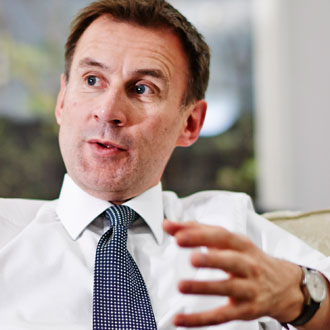Named clinician scheme will not be onerous for GPs, GPC says

The Government’s planned named GP scheme ‘should not prove particularly onerous’, the GPC has said, despite the health secretary’s insistence that it will involve ‘a lot of extra work’.
In guidance published on its website, the GPC said practices are already carrying out most of the responsibilities involved with the named GP plans, which will form part of this year’s GP contract and is due to be announced in the ‘next few days’.
The GPC guidance said that GPs already had a contractual requirement to offer newly registered patients a choice of named healthcare professionals, and that this will be a ‘largely a role of oversight’ that will not involve caring for patients outside of normal working hours.
But this comes after Jeremy Hunt told Pulse last month that the plans are ‘a very big change’ that will involve ‘a lot of extra work’ for GPs.
The plans involve practices specifying a named GP to co-ordinate the care of all patients over the age of 75, for which they should receive £5 extra funding for every patient on their list.
NHS England has said that CCGs will be expected to give this funding to GPs. It said: ‘CCGs…will be expected to provide additional funding to commission additional services which practices, individually or collectively, have identified will further support the accountable GP in improving the quality of care for older people. This funding should be at around £5 per head of population for each practice, which broadly equates to £50 for patients aged 75 and over.’
The final details about what GPs will have to do are likely to be published alongside the new contract in the next few days, GPC deputy chair Dr Richard Vautrey said.
It is likely to be included as part of the service specifications for the new emergency admissions DES, which will involve specifying a named GP for the top 2% of their most vulnerable patients.
Related stories
Jeremy Hunt: ‘I have no problem with GPs being well paid’
But the GPC guidance is the most detailed indication up to now about what the plans will involve.
It said that practices will have to inform patients of their named GP by 30 June. The named GP will be expected to:
- take lead responsibility for ensuring that all appropriate services required under the contract with the practice are delivered to the patient;
- work with other health and social care professionals to provide a ‘multidisciplinary care package’ for the patient when necessary;
- ensure that the physical and psychological needs of the patient are recognised and responded to;
- and ensure that the patient has access to a health check if requested, which is already a requirement of the GP contract regulations.
It added: ‘We do not expect these requirements to add a significant additional burden to the work of GPs or their practice staff. Indeed, they are in line with the arrangements already in place in many practices and there is already a contractual regulation in place to offer newly registered patients a choice of their preferred named healthcare professional.’
‘This is largely a role of oversight, with the requirements being introduced to reassure patients over 75 that they have one GP within the practice who is responsible for ensuring that this work is carried out on their behalf.’
Dr Vautrey said: ‘We’re suggesting that this formalises what many practices are already doing. The significant new work comes with the new admission avoidance DES, which links to the named GP requirement’
This comes after the health secretary told Pulse: ‘It’s a very big change, and there’s a lot of extra work, but that’s why we’ve removed 40% of the QOF targets to help free up GPs’ time, and we’ve also put in extra resources. The extra £5 [per patient funding] is a reflection of the fact that we know that to deliver better care we need more capacity in the system.’
Health minister Dr Dan Poulter said that named GPs coordination of care would be devolved to district nurses, an idea that was quickly challenged by the Royal College of Nurses who said that ‘significant investment’ was needed before responsibilities could be shared.
Please note: this was amended on 15:40 on 5 March 2014. The article originally stated that GPs will be given £5 per elderly patient. However, the figure is actually £5 per head of population.











